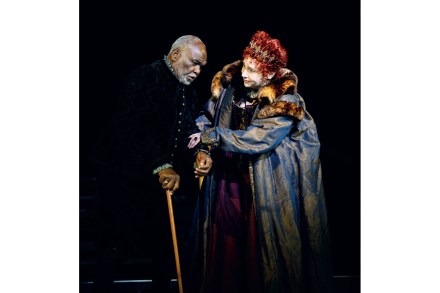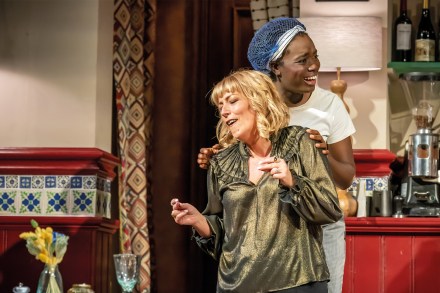Pure, heavenly escapism: The Unfriend, at the Criterion Theatre, reviewed
The Unfriend is a smart new family comedy which opens on the sunlit deck of a cruise ship. Peter and Debbie, a boring middle-class couple, are introduced to a clingy American tourist, Elsa, who worms her way into their affections. Before they know it, they’ve agreed to let her visit them at home after the cruise. A few weeks later, she shows up unannounced. By now the pair have learned from Google that Elsa is suspected of murdering her husband and several other members of her family. But they’re far too nice, and too English, to tell her to get lost. The crafty Elsa forms an alliance with their angry




















